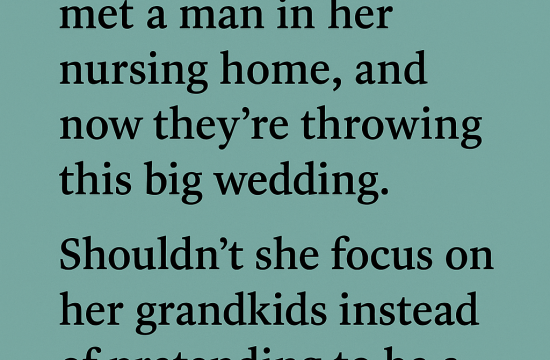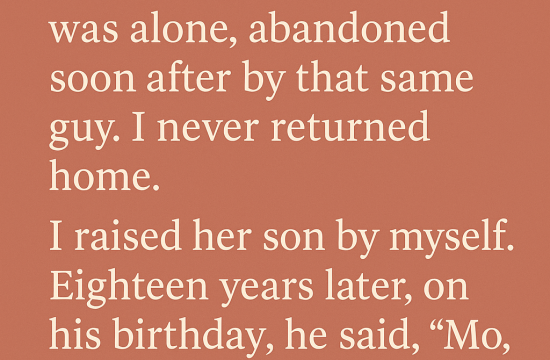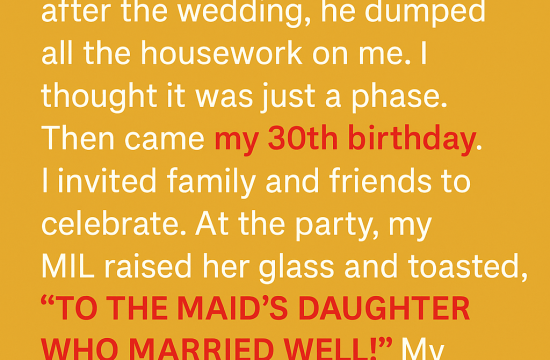Nancy, a 35-year-old single mother of three, was already juggling the impossible—school drop-offs, night shifts, and scraped-together meals. Yet for years, she also cared for her 74-year-old mother, who lived in the spare room, rent-free.
When her mother moved in, she helped with the kids—folded laundry, stirred soup, told bedtime stories. But after a bad fall left her unable to contribute physically, Nancy was left to shoulder it all. She was emotionally exhausted and financially drowning.
One night, after checking on the baby and paying the electric bill late—again—Nancy gathered the courage to ask her mother for modest financial help. “Just a few hundred a month,” she said gently, “to help cover groceries or a sitter.”
Her mother’s reply came with a stare as cold as stone:
“I’m your mom. You owe me. I wiped your nose, changed your diapers. This is how family works.”
Nancy stood there, stunned. Her request wasn’t about greed—it was survival. But her mother didn’t see it that way.
The next day, without warning, a moving truck arrived. Her mother had arranged to move into a nursing home. But the real blow? She took half the house’s furniture—including the baby’s crib, which she had originally gifted.
Nancy sank onto the floor of her now-bare nursery, torn between heartbreak and fury. She hadn’t wanted her mother gone. She’d wanted partnership. Shared weight. Recognition. Instead, she was left with silence—and an echo of old love that suddenly felt transactional.
Her story is more common than we admit. Millions in the so-called “sandwich generation”—mostly women—are caught between caring for aging parents and raising young children, all while holding down jobs. And while love may be limitless, time and money aren’t.
Gratitude doesn’t pay rent. And self-sacrifice, when demanded instead of volunteered, becomes a slow betrayal.
Nancy didn’t abandon her mother. Her mother walked away from the uncomfortable truth: caregiving is labor, not just love. And when one side refuses to even acknowledge that, relationships crack under the pressure.
Should family caregivers be paid? Increasingly, advocates and families are drawing up formal care agreements, not to strip caregiving of love, but to preserve dignity—for both sides.
Nancy’s question is one more families must find the courage to ask:
“How do we care for the people we love without losing ourselves?”
The answer doesn’t begin with guilt.
It begins with honesty, boundaries—and mutual respect.











